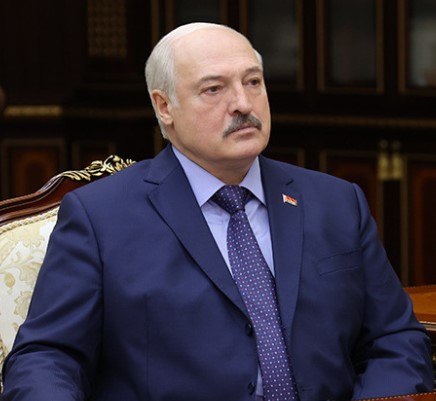Scholz believes that fighting in Ukraine was not the root cause of the crisis in Europe

The time of "economic exclusivity" for Europe and North America could not last long, during which the inhabitants of these continents could enjoy low inflation, stable economic growth and low unemployment. This was stated by German Chancellor Olaf Scholz at an economic summit organized by the Süddeutsche Zeitung. His words are quoted by the publication.
“The Russian war and the economic fallout from the pandemic may have hastened its end. But they were not the reason for this, ”Scholz believes.
Collins Dictionary Names 'Permacrisis' Word of the Year Society
The chancellor pointed out that for decades, Vietnam, Indonesia and similar countries produced goods at relatively low prices, the products were sent mainly to Europe, to North America and, eventually, to CHINA . Now, he continued, the region's 1 billion people have become a middle class with corresponding purchasing power. Scholz explained that this was one of the main causes of inflation, but also a big success story created by globalization.
Speaking about the current situation with the supply of energy resources to Germany, the chancellor said: "[That's] what it means to become too dependent on such a strategically important resource as gas." Scholz emphasized that this mistake would not be repeated a second time. According to the Süddeutsche Zeitung, this means that Germany will look for other markets and sources of supply besides China .
Scholz noted that the world expected big problems for Germany due to the cessation of gas supplies from RUSSIA, but this did not happen. “Everyone is very impressed with what we did, how quickly we did it and that we really did it,” the HEAD of the German government said.
Economists predict "strong" inflation in Russia Economics Read on RBC Pro How the production personnel market survived 2022 "1C" for a manager: five difficulties of self-configuration Moving to Montenegro: is it difficult for Russians to settle down in this country How to cope with the main sign of aging:3 effective methods
The IMF called the outlook for the global economy grim, attributing the dynamics to the fighting in Ukraine and related sanctions that worsened food security and the energy crisis, weak growth in China amid restrictive measures due to the pandemic and the crisis in the real estate market, and high inflation in some countries.
"The challenges facing the global economy are enormous, and the weakening economic performance indicates that new challenges lie ahead," said Tryggvi Gudmundsson, an economist at the IMF's research department.
The fund believes that more than a third of the global economy in 2022 or 2023 will contract, and the three largest economies ( US , EU and China) will continue to stagnate. IMF Chief Economist Pierre-Olivier Gourinsha described the outlook as "the worst is ahead."
Read together with it:
- Парагвай: Экспорт субпродуктов является растущей отраслью и уже достиг 95,4 млн долларов СШАЭкспорт говяжьих субпродуктов в этом году значительно вырос. К концу августа выручка составила 95,4 млн долларов США по сравнению с 54,6 млн долларов США на тот же конец прошлого года. По данным SENACSA, в конце августа этого года было экспортировано 51 миллион килограммов мяса по сравнению с 33,7 миллиона килограммов на конец того же месяца прошлого года. Экспорт субпродуктов увеличился на 51,3%....
- Министерство сельского хозяйства США представило план по снижению цен на говядинуПоголовье скота в стране находится на самом низком уровне за последние 75 лет, в то время как спрос на говядину вырос на 9% за последнее десятилетие. Поскольку увеличение поголовья скота в стране требует времени, Министерство сельского хозяйства США (USDA) уже сейчас инвестирует средства, чтобы сделать эти рынки менее волатильными для скотоводов в долгосрочной перспективе и более доступными для по...
- С января по июль экспорт свинины из ЕС вырос на 1,6%На втором месте оказались Нидерланды с объёмом экспорта в 392 000 тонн. Дания экспортировала свинину в третьи страны с объёмом в 308 000 тонн, что примерно на 13% меньше, чем в предыдущем году. Германия экспортировала 180 000 тонн, что на 18% меньше, чем годом ранее. Это было обусловлено, главным образом, дополнительными ограничениями на экспорт, вызванными вспышкой ящура в начале года. Помимо зап...




























































